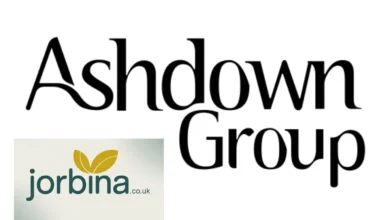Selecting Appropriate Capping Machines for Every Type of Bottled Product

In the food, beverage, and personal care industries, the safety, shelf life, and consumer satisfaction of every product depend heavily on the kind of packaging used. For B2B companies like manufacturers, distributors, and commercial suppliers, picking an ideal capping solution helps streamlining operations and also boosts the bottom line. From various packaging technologies, the plastic jar sealer has become a fundamental device to automate the capping process, deliver automation, and protect the product’s quality. This blog will focus on the selection of capping machines for various bottled products and the integration of plastic jar sealers into production lines.
More than merely sealing a bottle, capping ensures product integrity and prevents leakage, spoilage, and customer dissatisfaction. The reputation of a brand and the cost of brand operations will suffer immensely from poorly sealed and uncapped bottles.
Automated plastic jar sealers guarantee precise torque and consistent seal quality on containers, regardless of their size and shape. Automation enhances sealing quality, reduces production time, and limits human error. For business-to-business engagements, high-quality sealers ensure that products are fresh and safe when shipped to distributors and retailers or other commercial customers.
Factors when Selecting Capping Machines for Various Containers
Capped products come in different shapes, sizes, and materials that require different sealing and protection methods. The diversity in bottle design and size (eg, tall and slim or wide and short) and closure (eg, screw, flip-top, snap-on) types increases the complexity of selecting an efficient and protective sealing solution.
Business-to-business clients of plastic jar sealers value versatility and the ability to seal different containers, especially PET, HDPE, and polypropylene. In selecting a capping machine, they also consider the dimensions to be sealed, the closure to be used, the expected production rate, and the speed of the production line. A capping machine designed for a specific bottle requirement ensures that operations are efficient, hence, reduced errors, less downtime, and less time spent on packaging.
Improving Efficiency Using Automation
The traditional method of manual capping is inconsistent, slow, and requires a lot of labor, but automated capping machines and plastic jar sealers perform capping at high speed with accurate seal torque and consistent sealing. Automation of this level improves throughput and labor cost, while also allowing the operators to attend to other important tasks like quality control, labeling and inventory management.
In the case of B2B companies, high-speed capping machines streamline the process of order fulfillment at scale, while also ensuring that the uniformity of the products is maintained. Once a plastic jar sealer is integrated into the production line, manufacturers are able to reliably and consistently scale operations to meet rising demand.
Meeting Compliance and Product Safety Requirements
In the sectors of food, beverages, and personal care, the issues of hygiene and compliance are very important. Recalls, regulatory violations, and damaged reputation are the repercussions of improperly sealed bottles and contaminated products. Plastic jar sealers come with a method of capping in a sterile environment that reduces the risk of human contamination and sealed contamination.
Modern capping machines consist of food-safe, rustproof materials and are designed for easy cleaning and upkeep. Automated torque control guarantees that every bottle is capped and sealed exactly right, every time. They meet all industry regulations. For B2B customers, these features are critical for confidently supplying safe, compliant, and controllable products to wholesalers, retailers, and commercial customers.
Minimizing Waste and Operational Expenses
Leaky, unsealed, and poorly packaged bottles are an expensive and wasteful headache. They generate unnecessary operational costs. Consistent torque and dependable sealing offered by plastic jar sealers eliminate these problems and wasteful resource expenditure.
Automated capping machines are designed to eliminate manual sealing of jars and reduce operational costs. In B2B environments, the value of an automatic capping machine lies in its ability to deliver a cost-efficient automated production line that reduces raw material waste and promotes eco-friendly packaging. The combination of decreased labor cost, waste reduction, and rapid machine operation enhances the bottom line and operational efficiency.
Supporting Flexibility and Scalability
The food, beverage, and personal care industries are very fluid, with constant changes in product lines, and seasonal products, and bottle sizes can vary greatly. Capping machines need to be flexible enough to handle these changes quickly and easily without any downtime in production. Plastic jar sealers are perfect for these production needs because they have adjustable settings for different bottle heights, diameters, and even different closure types
Scalable solutions that meet the needs of the. target market helps B2B businesses grow. Whether manufacturers are doing small batch production for limited editions or large scale runs for commercial clients, flexible capping machinery allows them to quickly respond to changes in market demand. This boosts product change, rapid market entry, and customer satisfaction.
Enhancing Brand Image and Market Competitiveness
Professional and consistent packaging for products builds trust and brand equity not only with customers but also with clients. Seal bottles with uniform torque which prevents leaks and ensures that products are in pristine condition when they are delivered to retailers.
Plastic jar sealers are an integral part of polished and trustworthy product presentation and are important for B2B businesses that market to commercial clients. Quality sealing increases product protection and helps build strong ties with distributors, retailers, and other channel partners. Investing in reliable capping machines demonstrates a commitment to operational excellence, and such businesses stand a better chance of market competitiveness.
In conclusion, the right capping machine is essential to maintain product integrity and operational efficiency, which in turn enhances market competitiveness. Capping automation with plastic jar sealers helps achieve uniform torque and maintains the quality of sealed jars. By looking at the type of bottle, closure type, production capacity, and speed, B2B companies can identify machines that align with their operational needs.
The right plastic jar sealer in the production line improves efficiency, cuts down on excess production, maintains hygiene and safety, and encourages volume production. For manufacturers, commercial distributors, and suppliers, advanced capping technology is a game changer as it enhances reliable product delivery, saves brand image, and improves market competitiveness. In the food, personal care, and beverage industries, the right capping machine helps build market presence and improves operational excellence, which is critical for long-term growth.



